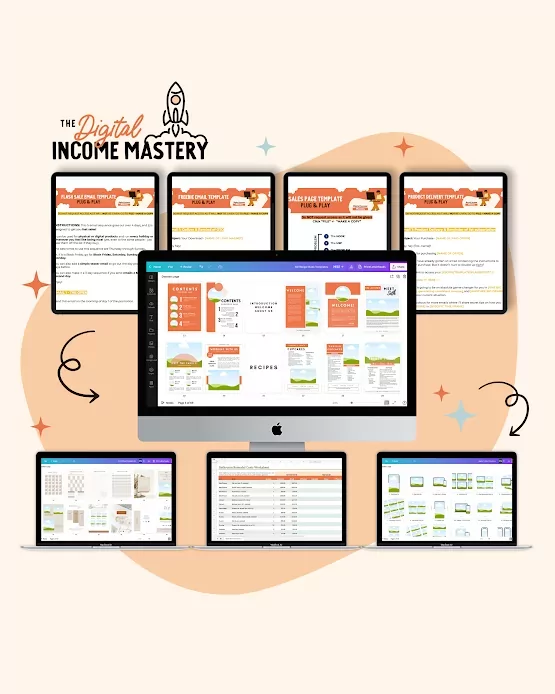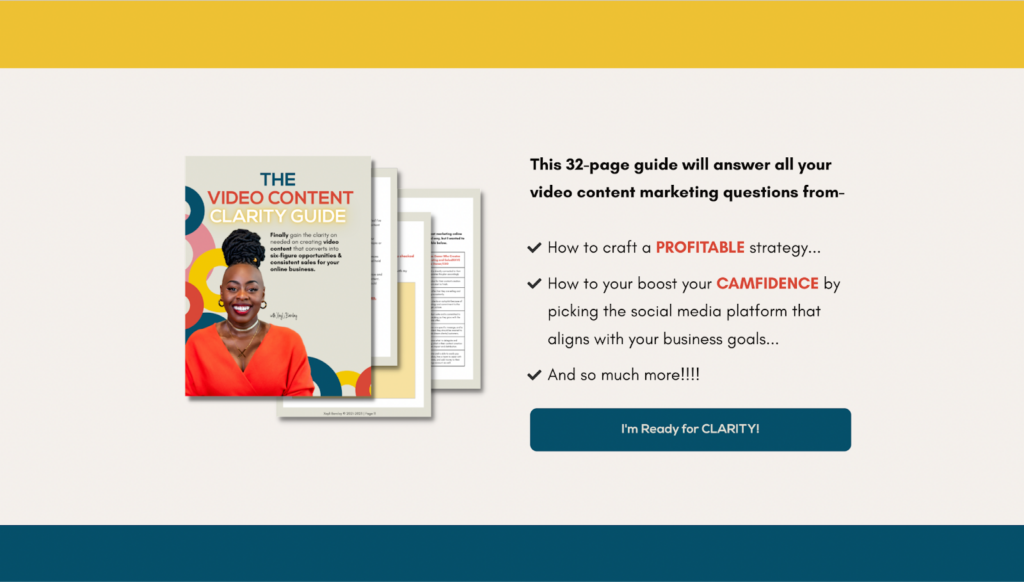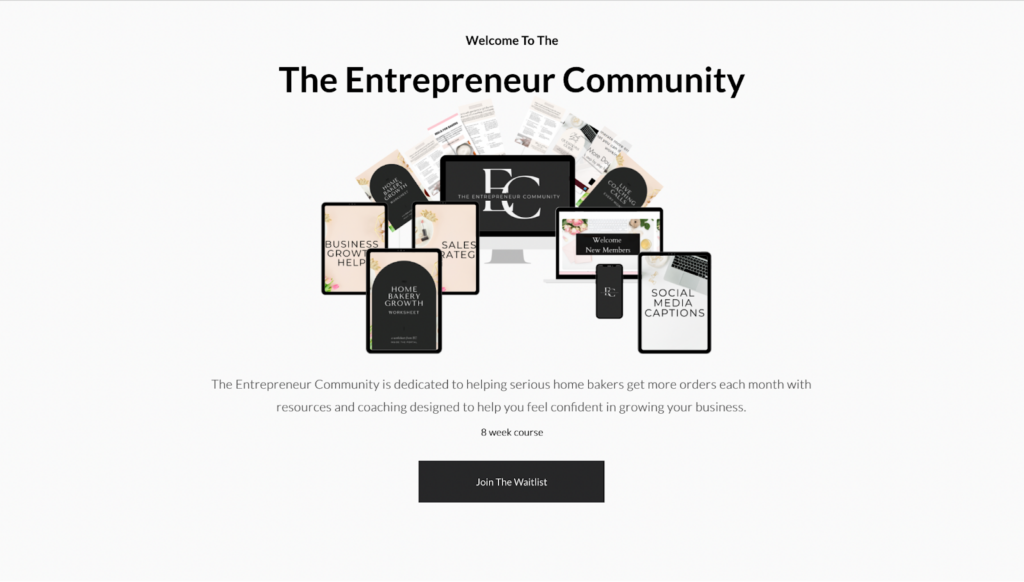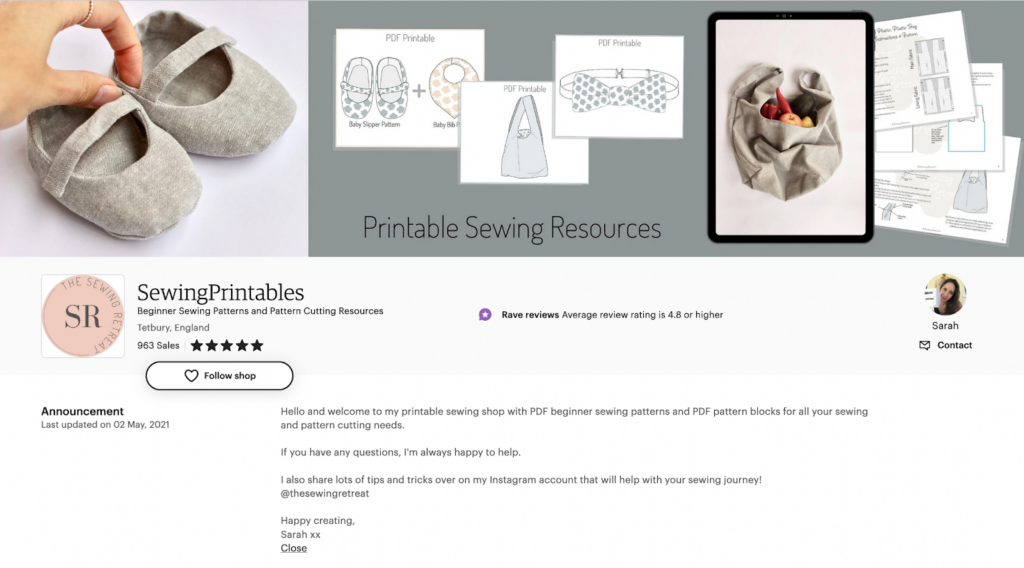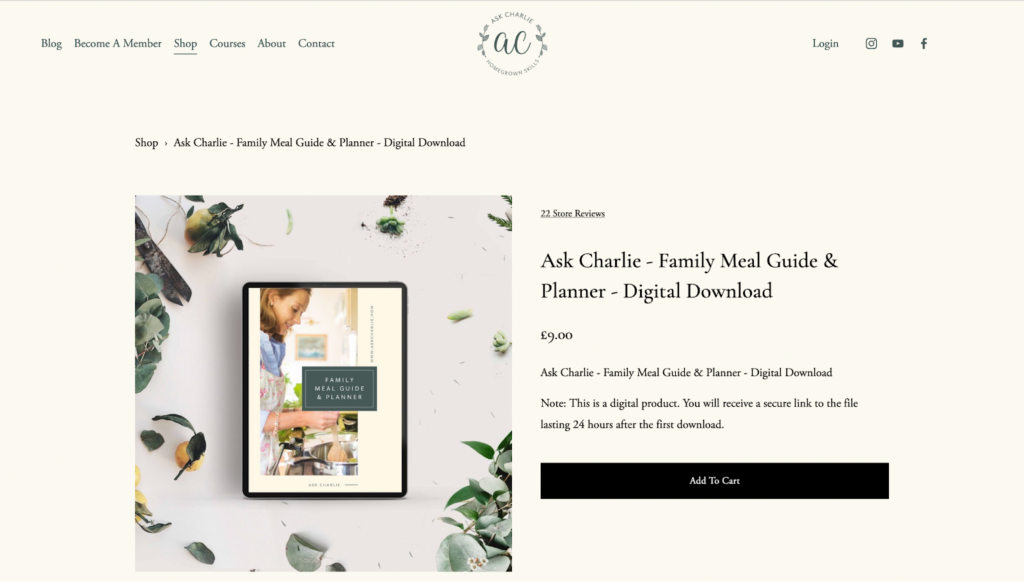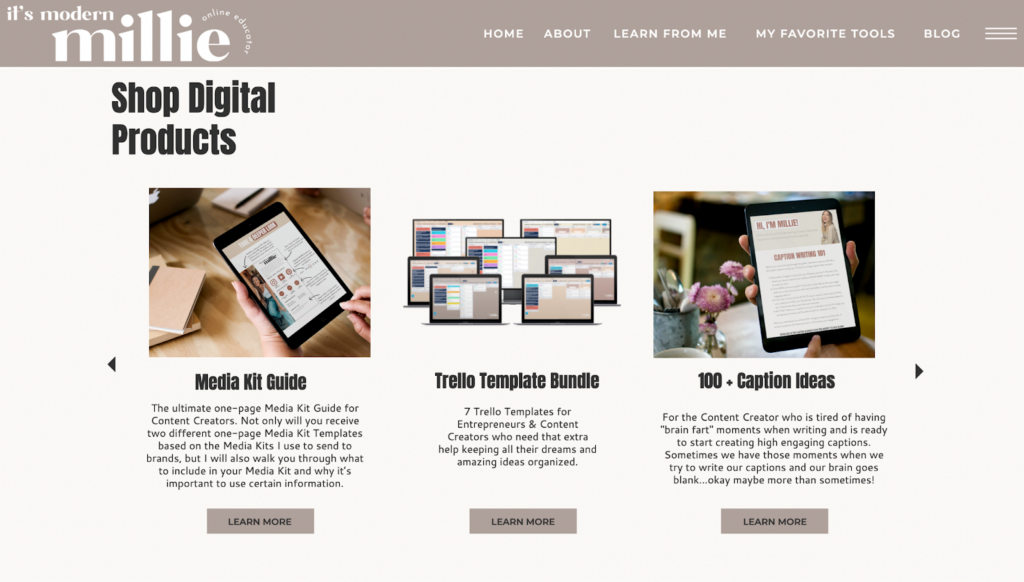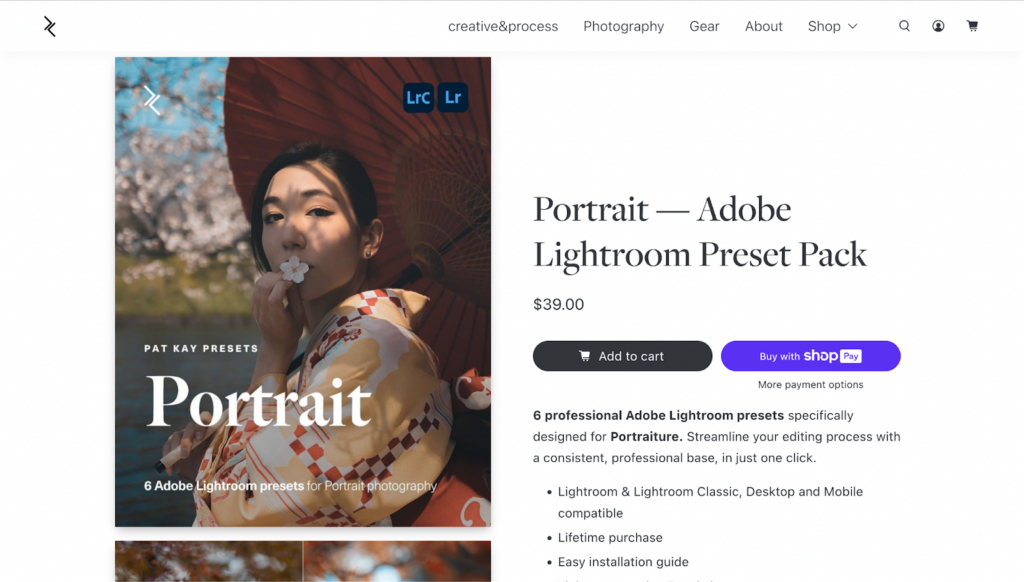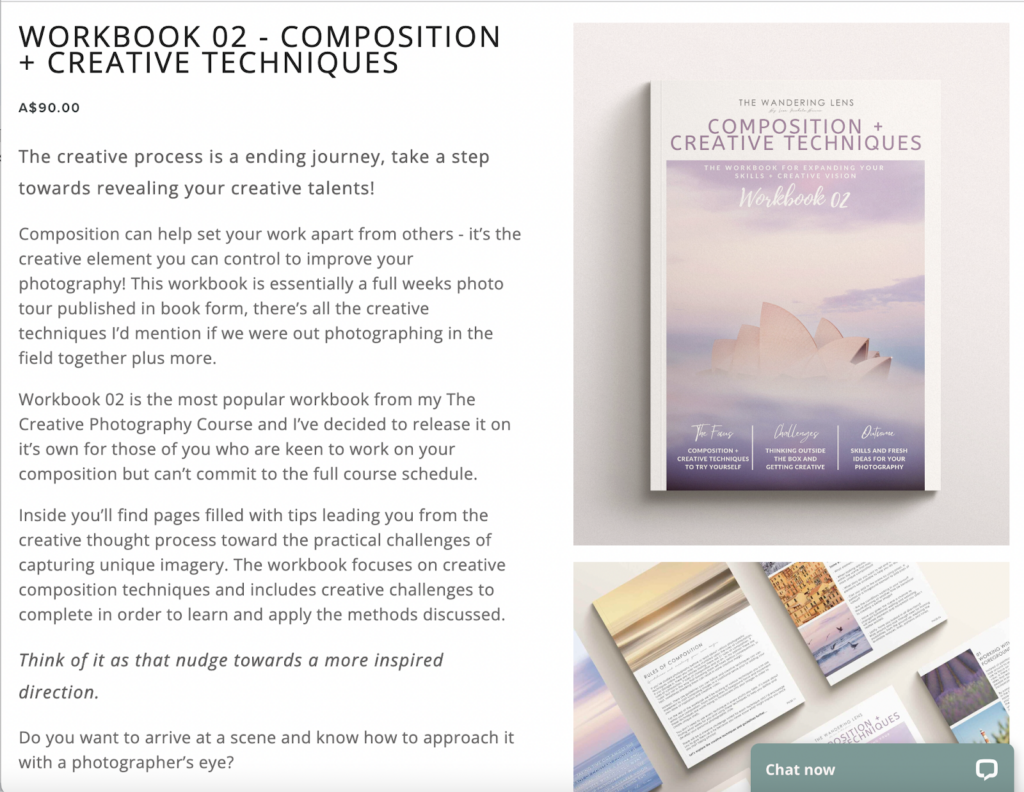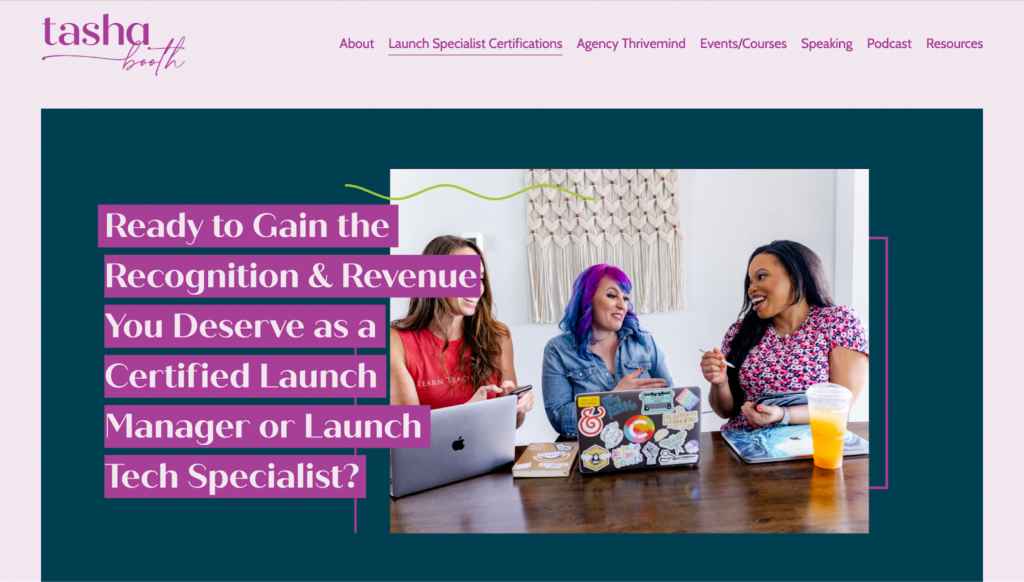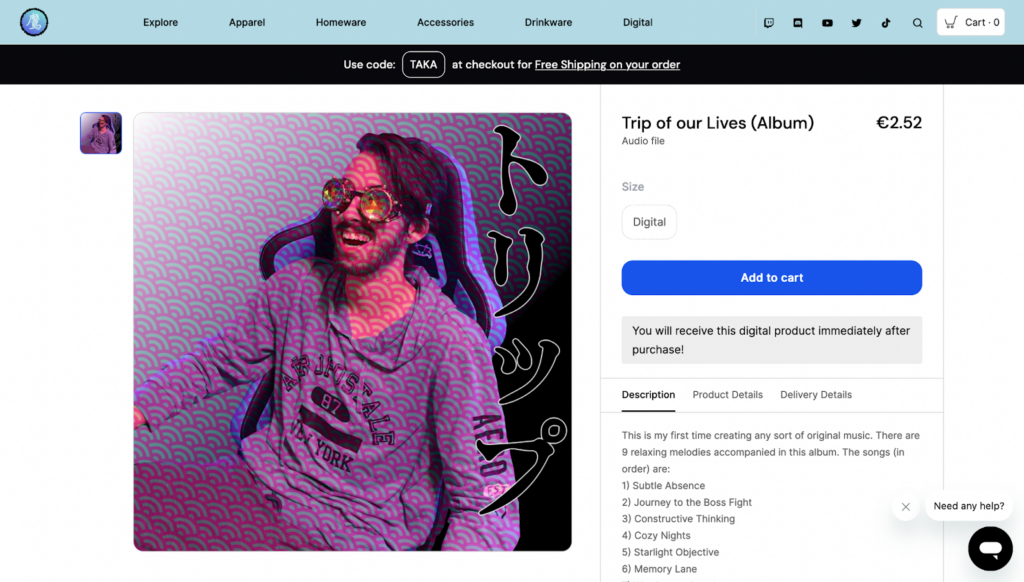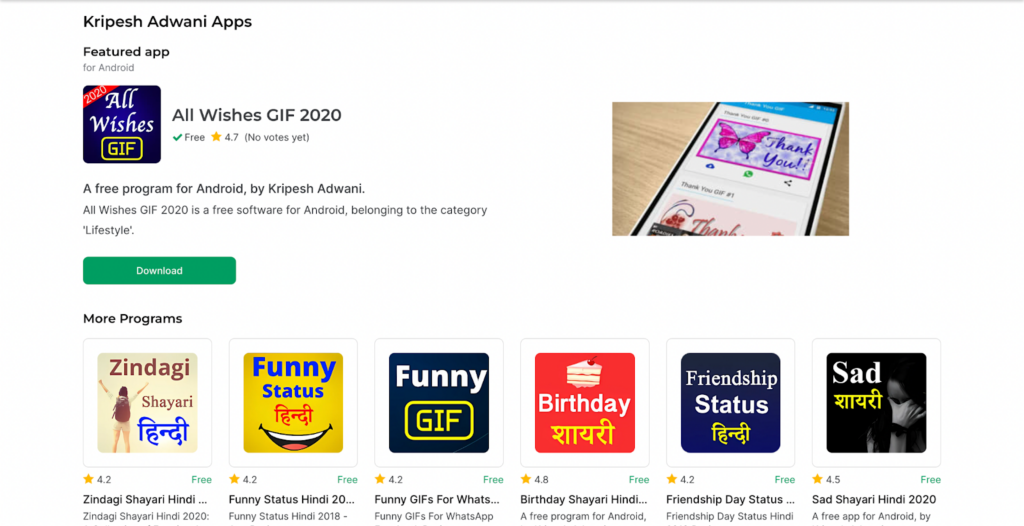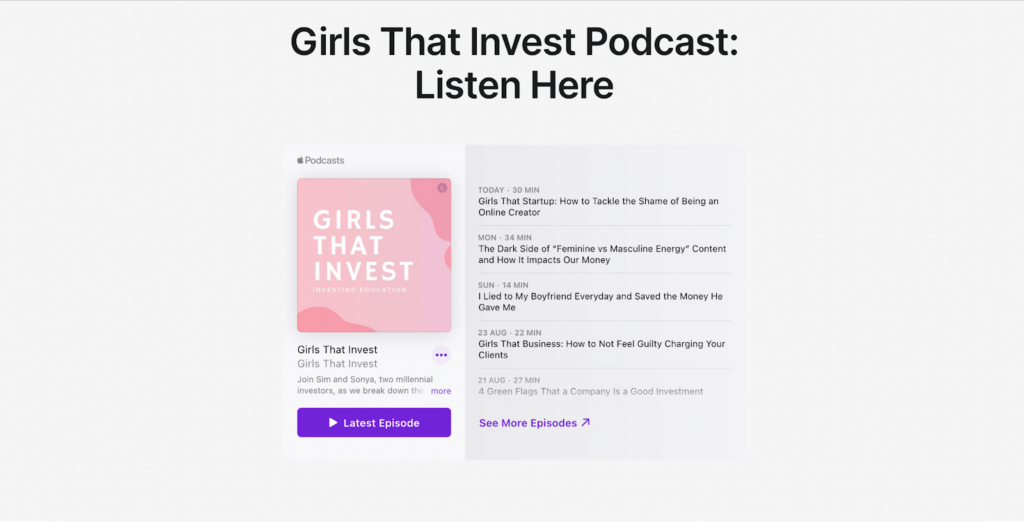In 2023 anyone can set up a business from their bedroom and start selling digital products online.
But with all the digital product ideas out there, it can be tough to know which one will work for you.
To help you weigh up your options according to your budget, skills, and goals for your business, we’ve put together our list of the top digital product ideas – including the pros, cons, and real-life examples from successful creators.
Let’s dive in…
Related: How to Create Digital Products
Top 15 digital product ideas to sell online
Click the links in the table to skip ahead:
| Digital product ideas | Pros | Cons |
|
| |
|
| |
|
| |
|
| |
|
| |
|
| |
|
| |
|
| |
|
| |
|
| |
|
| |
|
| |
|
| |
|
| |
|
|
One of the most effective digital products you can create are online courses. Educational digital products like online courses and coaching give you the chance to reach a wider audience with minimal effort – compared to traditional 1:1 coaching calls and live teaching.
Online courses are usually made up of pre-recorded video lessons or modules, with additional assignments and worksheets to help learners apply their knowledge. They might also include live teaching elements like a weekly live group call or Q&A. You can create online courses on any topic – according to your expertise, skills, and experience.
Difficulty level: 4/5
Advantages
- Become a thought leader: Online courses give you the chance to establish a reputation as an expert in your chosen field. Share your expertise with a larger audience – and become the go-to person in your niche.
- Plan and publish in advance: Unlike traditional 1:1 coaching, online courses give you the chance to educate at scale as they don’t require direct input from you every day. Simply create your course, publish it on your chosen platform, and let your audience learn at their own pace.
- Create multiple tiered offers: There’s no limit to how many courses you can make, so you can create a range of offers that range from low ticket to higher ticket products. For example, publish a short course and sell it at a low price, then use it as a lead magnet for a longer, more in-depth course with more live teaching that you can sell as a premium product.
- Drip feed content: If you don’t want to invest your time into creating a course ahead of time, drip feed your course modules gradually, adjusting your content as you go depending on customer feedback and reviews. This gives you more control and helps you create the best possible resource for your target audience.
Disadvantages
- Requires expertise in a specific topic: This digital product idea depends on you having expertise or knowledge in a certain niche. The good news is, there’s really no limit to what you can create an online course on – including speed reading, hoop dancing, and everything in between.
- Needs initial time investment: The biggest difficulty with creating your own online courses is the time it takes to get your expertise out of your head and onto the page. But thanks to drag-and-drop online course builders, it’s easier than ever to create your online course from scratch – you’ll just need to set aside enough time to structure and plan your content.
Real-life examples of this digital product idea
- Food Freedom Breakthrough: Dietician Deanna Wolfe has built a 7-figure business selling online courses with a mission to heal womens’ relationship with food – and she’s now been named one of the most influential people in wellness.
- Going with Grace: Alua Arthur found her calling after a conversation on a bus – and generated $2.5 million from her online course that teaches death doulas how to support people in their end-of-life transition.
- The Wealth Streams Academy: George Pitts has built an academy of over 50 online courses to help people turn their knowledge into profits with digital products – and has grown his business to become a 7-figure creator.
Related: How To Create An Online Course For Free (Software & Tools)
If you’ve used the internet in the past 10 years, chances are you’ve downloaded an ebook at some point. Ebooks are one of the best-known digital products out there, varying hugely from free downloadable guides to 3000-page deep dives into a specific topic. Not to mention the huge range of fiction now available in ebook form.
Nowadays ebooks are usually made up of a combination of written text and graphic design elements like infographics, tables, and images. This makes the reading experience more interesting and engaging, while also helping your ebook to stand out from the crowd – so it you’ll need to put your writing and design skills to good use.
Difficulty level: 2/5
Advantages
- Fully customizable: The ebook format is fully customizable – you’re the boss here. Ebooks can include anything from in-depth guides to recipe books to fan fiction. The (virtual) world is your oyster.
- Wide range of topics to choose from: Think of any topic on the planet – and you can create an ebook from it. There is an enormous range of possibilities with this digital product idea, so let your creativity fly.
- Create a library of resources: As ebooks are relatively quick and easy to make compared to other digital products, you can churn out multiple ebooks in a short period of time. This means you can create multiple offers – some free, some paid, and some as bonus resources for your online course or membership products.
Disadvantages
- Need to have good writing skills: Creating an ebook requires some writing and design – so you’ll need to be comfortable with both. Use pre-made templates from sites like Canva to help you with the design, but the words will need to come from you.
- Crowded marketplace: The biggest challenge when you’re creating ebooks is getting your product seen by the right people – it’s a crowded market out there so you need to make sure your offer is clear and tailored to your target audience.
Real-life examples of this digital product idea
- The Digital Income Mastery: Diamond Lee created a digital marketing consultancy company and wrote a 20-page ebook which she started selling for just $27 – within 59 days of selling the ebook, she’d made $19,983. And the rest is history.
- Smart Stewards: Finance consultant and Tedx Speaker Sola Adesakin founded Smart Stewards, a financial literacy platform and community selling digital products – including a library of ebooks – to help more people learn the key principles of personal finance and wealth management. She now has a community of over 80K followers on Instagram and is an official member of the Forbes coaches council.
Related: How To Sell Ebooks Online: The Definitive Guide
Like ebooks, guides are downloadable digital products that can be used to teach, inform, and help learners – with a focus on actionable advice and tips. Many guides provide step-by-step instructions on how-to do a specific process, as well as examples, case studies, and trends and insights on a topic.
If you’ve got expertise to share, a guide is a great way to get it out there – and give your audience helpful information that they can use immediately. The best part? Guides are a great low-ticket digital product that can be used to generate leads for your higher ticket offers.
Difficulty level: 1/5
Advantages
- Relatively cheap to produce: Unlike more complex digital product ideas, guides are relatively quick, easy, and most importantly, cheap to produce. You can create 1-page downloadable guides that are hugely useful to your audience – but don’t need a blow out budget to produce.
- Actionable advice for your audience: Guides focus on providing actionable advice to your audience – so they immediately get value from your products. This helps to establish your brand as a trusted resource and increases the chance that your target audience will be interested in more products from you down-the-line.
- Can be used as lead magnet for other digital products: Free and lower priced guides are ideal for capturing information from your target audience – think email addresses – which can then be used for upselling later on. Use guides as a simple lead magnet for your higher ticket offers.
Disadvantages
- Hard to differentiate your products: Guides are dime a dozen nowadays so differentiating your digital products from all the others in your industry can be difficult to achieve. Before you start, do detailed competitor research to identify what you can do differently to other brands.
- Ideally need an existing audience: Thanks to the hefty competition your guides will face, it’s easier to sell this digital product if you have an existing brand or audience. Use your social media and email list to promote your guide and drive sales.
Real-life examples of this digital product idea
- Start Shoot Grow Video Academy: Creator Educator Xayli Barclay is on a mission to help business owners master their cameras to build, market and sell their own online courses – and she has created countless guides to help her 18k+ followers kick start their digital product businesses and unlock multiple revenue streams.
- It’s Modern Millie: With an audience of over 400,000+ followers, influencer Millie Adrian seized the opportunity to sell digital products online and help aspiring creators learn how to become influencers. She has created a series of guides, templates, and downloadables – such as a simple one-page Media Kit Guide for Content Creators.
Short, sweet, and super valuable to your audience, masterclasses are a digital product focussed on delivering a lot of information in less time than a traditional course. Masterclasses can range from single standalone events to a series of workshops and sessions centered on a specific topic or theme. But what all masterclasses have in common is that they’re taught by experts.
Choose whether you want your masterclass to be live or pre-recorded – the most important thing is to make sure your masterclass is jam-packed with helpful information for your audience and gives learners a chance to deepen their knowledge on a particular subject.
Difficulty level: 3/5
Advantages
- Show off your expertise: Masterclasses can cement your status as an expert and thought leader in your field by delivering big value to customers in a short space of time – unlike full-length courses, you can get away with a more simplistic format, like talking-head style videos.
- Relatively easy to create: Masterclasses are shorter-form digital content so they don’t need as much time and resources to create. Repurpose your existing course content (if you have it) as well as content from guides, ebooks, and podcast episodes.
- Provide valuable tips and information: Masterclasses and workshops are usually focussed on actionable tips and help – so you deliver maximum value to your audience and increase the chance they’ll come back for more.
Disadvantages
- Often live events: Many creators choose to run masterclasses as live events – which can quickly fill up your calendar. To get around this disadvantage, try pre-recording your masterclasses and drip-feeding them to customers instead.
- Best used alongside other digital products: Masterclasses are most valuable when they come with additional digital products and resources like templates, guides, and workbooks to help add value for your students.
Real-life examples of this digital product idea
- Sundown Lines: Mixed media artist Ellen Daly first started creating textured art when she was pregnant with her second child to create space for herself and provide a creative outlet. After starting an Instagram account, she quickly built a thriving community and began selling workshops. The result? Ellen sold just under 2,000 workshops in 4 months, generating around $72,000.
- Regina Anaejionu: After finding her friends and acquaintances asking the same questions over and again about entrepreneurship, Regina Anaejionu was inspired to set up an educational business – with masterclasses on marketing, thought leadership, intellectual property, and more. She is now a thought leader in her field and a trusted resource for hopeful creator educators.
Related: How To Set Up A DIY Home Video Recording Studio
If you’re looking for a digital product idea that will bring you closer to your audience, while generating extra income – a membership site might be the one for you.
At its most basic, a membership site is a gated site that offers members-only content, including exclusive resources, Q&As, community forums, and live sessions. Your membership site is really what you make it – your structure will depend on who your target audience is and the type of membership you want to offer, as well as how much time you can dedicate to student engagement.
Difficulty level: 4/5
Advantages
- Scalable digital product: Unlike 1:1 coaching, membership sites can accommodate an almost unlimited number of subscribers, so it’s a hugely scalable digital product. As you build your audience, you can create more memberships and roll out additional digital products – so you’ll eventually end up with a whole academy!
- Upsell opportunities: This digital product idea combines really well with other digital products – like online courses, ebooks, and workshops. Use your membership site as a space to connect with your audience and open up opportunities to re-convert and upsell.
- Generate monthly recurring income: The beauty of memberships is that they generate monthly recurring revenue for your business – when someone signs up, they will continue to pay a monthly subscription until they choose to unsubscribe. Unlike other digital products, that means you have a steady income coming in every month, rather than trying to create and sell new products every week.
Disadvantages
- Ongoing commitment: The downside of this digital product idea is that it’s not a set and forget project. Your members will expect ongoing content from you as part of their membership – so you’ll need to create a schedule for creating and posting new tips, resources, and valuable information.
- Need engagement strategies: To retain your members once you get them in the door, you’ll need to work on customer engagement strategies to keep them involved and invested in your membership and avoid losing them too soon.
Real-life examples of this digital product idea
- The Entrepreneur Academy: Dedicated to helping home bakers turn their passion into profit, chef Amanda Schonberg sells her membership for just $25 per month and has built a multiple-six-figure salary by providing valuable advice and information every month.
- Key to Pictures Academy: Following the success of her online course, Katie Evans created a membership community where members pay a monthly subscription fee in exchange for access to over 80 video lessons on photography and live Q&A sessions.
- EMDR Professional Training: Dr. Michelle Gottlieb and Dr. Curtis Rouanzoin created a membership community to help train over 5,000 mental health professionals to do EMDR therapy – charging $9 USD per month or $99 USD per year.
Related: 13 Membership Site Examples That Will Inspire You
10 more digital product ideas + examples
Printables are digital products you can create for customers to download and print at home. When it comes to digital product ideas, printables are one of the fastest and easiest to make – and the designs can be as simple or as complex as you choose.
Difficulty level: 1/5
Advantages
- Cheap to make
- Simple PDF formatting
- Use pre-made templates and customize for your audience
Disadvantages
- Lower ticket product
- Limited revenue
Real-life examples of this digital product idea
The Sewing Retreat: Sarah Rozelaar built the Sewing Retreat aimed at helping amateur sewers start making their own clothes and creating their own sewing patterns – and now she sells a wide range of printables on her Etsy store, as well as guides, masterclasses, online courses, and more.
If you’re looking to help your customers get organized, digital planners are an ideal digital product idea to solve your customers’ key problems quickly and efficiently – think meal planning, back-to-school calendars, workout planners, and more. Put your design skills to good use to create beautiful digital products that your customers will use every day.
Difficulty level: 1/5
Advantages
- Helpful product customers can use every day
- Keep your brand top-of-mind
- Valuable, actionable resource
Disadvantages
- Short-term digital product
- No recurring income
Real-life examples of this digital product idea
Ask Charlie: Charlotte Diana Gray has built a business based on teaching practical home economics skills through guides, ebooks, online courses and more. Ask Charlie is now a thriving blog and community of over 17K centered on all things practical.
Use a tool like Canva to create digital templates for your customers ranging from resume templates to presentation templates and more. You can easily create templates to sell in a matter of hours – but if you want to add more designs and content, it will take longer. Not sure what type of templates to create? Ask your audience what will be most helpful to them.
Difficulty level: 2/5
Advantages
- Wide range of formats and topics
- Offer audience helpful tools they can use every day
- Easy to edit and update
Disadvantages
- Easy to copy and plagiarize
- Limited gains for customers compared to other digital products
Real-life examples of this digital product idea
Your Geek Chic: Founder of Your Geek Chic, Kim George is dedicated to helping creators design and sell their own digital products online – creating templates for a wide range of products, including gratitude journals, prayer journals, and book covers.
If you’re a photographer, you’ve probably already spent hundreds of hours editing your photos and finding your own unique style – and now you can turn this expertise into a digital product.
Presets and filters are a popular digital product idea for photographers looking to find a passive income stream, while helping to show off your style to your audience and give your customers a genuinely valuable product that they can start using immediately.
Difficulty level: 3/5
Advantages
- Show off your personal style
- Sell the presets you’re already using
- Instant value for your customers
Disadvantages
- Needs to be a genuinely unique preset product
- Potential for copyright issues with other creators
Real-life examples of this digital product idea
Pat Kay Adobe Lightroom Preset Pack: Award-winning photographer Pay Kay has worked with some of the world’s top brands – and is now teaching other photographers how to master the art of stunning nature and urban photography. He sells Adobe Lightroom presets as digital products, along with guides, masterclasses, and prints to his community of 200K+ keen photographers.
Another digital product idea your customers can use every day are social media templates – which help to cut down the time it takes to create posts, Reels, and videos for social media. Sell the templates you’re already using for your business to turn a profit for minimal effort.
Difficulty level: 2/5
Advantages
- Help your audience save time
- Use designs you’re currently using for your own business
- Ideal if your niche is related to marketing
Disadvantages
- Need social media expertise
- Algorithm changes can make product non-viable
Real-life examples of this digital product idea
Styled Stock Society: After working as a Marketing Director for ecommerce businesses, Ellie Drouin founded a membership-based stock photo site to help women build their brands with unique, high-quality photography that stands out from the crowd. As well as photos, Styled Stock Society now offers social media templates to help take the stress out of creating content for social media.
Help your audience reinforce what they’ve learnt from your content and courses with workbooks that help them practice and apply their knowledge, while keeping your brand front-of-mind. Workbooks can range from activity books to coloring designs to step-by-step guides and more. Look at your existing content to guide what you do with this digital product idea.
Difficulty level: 1/5
Advantages
- Help learners apply their knowledge
- Enhance your learning content
- Simplify the process of putting teaching into practice
Disadvantages
- Best used alongside other digital products
- Relatively low ticket offer
Real-life examples of this digital product idea
The Wandering Lens: Photographer and creator Lisa Michele Burns guides learners through the exact steps needed during the photography creative composition process in her Creative Techniques Workbook, sold under her successful travel photography brand The Wandering Lens.
Turn your knowledge and expertise into a certification or diploma program to help you teach others – and gain a wider audience for your business. With a certification program, every successful graduate becomes an advocate for your brand, while providing them with a true sense of achievement and pride that can be life-changing.
Difficulty level: 4/5
Advantages
- Take your online courses and masterclasses one step further
- Turn successful students into brand advocates
- Increase learners’ sense of achievement
Disadvantages
- Need to build your reputation as an expert
- More in-depth than a regular course
Real-life examples of this digital product idea
The Legendary Launch Manager Certification: CEO and Founder of the The Launch Guild Tasha Booth has created a 3-month certification program to help aspiring launch managers learn the skills they need to succeed, increase their marketability, and become more credible. She gives launch managers the confidence they need to go out into the world and transform their careers.
If you have musical skills and expertise, why not create music and audio products? This digital product idea is ideal for anyone with a musical ear and the technical know-how to create and record audio clips. There’s a huge range of audio products you can create and sell, including sound effects, music for videos, mediation tapes and more.
Difficulty level: 2/5
Advantages
- Monetize your musical expertise
- Wide range of music and audio sounds you can create
- Tailor products to your audience
Disadvantages
- Needs some technical knowledge
- May have to pay for recording software
Real-life examples of this digital product idea
THawks: Vtuber Taka Fujinaga created an album of original music with 9 relaxing melodies to go alongside the other digital products already on offer – and find new ways to engage and inspire their audience.
If you’re looking for technical digital product ideas, consider creating custom software and apps for your business – and even set up a whole new SaaS brand. This digital product idea is no small undertaking but if you have developer skills or the budget to hire professional developers to help, it has the potential to become a thriving business that’s hugely scalable and profitable.
Difficulty level: 5/5
Advantages
- Fast-growing industry
- Chance to build a business from scratch
- Create a SaaS product for recurring revenue
Disadvantages
- Requires developer skills
- Takes time to create
Real-life examples of this digital product idea
Kripesh Adwani: Kripesh Adwani has built his personal brand on helping budding entrepreneurs grow their businesses with digital products – and he has also created 100+ apps for his business and for others in both English and Hindi, racking up thousands of downloads along the way.
If you want to give your audience something to listen to on-the-go, podcasts are a top digital product idea – all you need is a microphone, recording software, and something to talk about.
Podcasts are ideal to help your target audience learn more about the topics they care about, as well as hearing from interesting guests and speakers, staying up-to-date on current events and trends, or simply being entertained.
Difficulty level: 4/5
Advantages
- Speak directly to your audience
- Collaborate with guests and influencers
- Offer audio content for learning on-the-go
Disadvantages
- Difficult to monetize
- Need some items of specialist equipment to start
Real-life examples of this digital product idea
Girls That Invest: Investing expert Simran Kaur helps women navigate the education behind investing alongside her friend and business partner Sonya Gupthan – together they’ve grown a community of over 300,000 women via their podcast Girls That Invest, as well as a series of guides, workshops and online courses that take the guesswork out of investing for beginners.
Related: How To Start A Successful Podcast (Step By Step Guide)
Ready to put these digital product ideas into action?
There’s a huge range of digital product ideas around today – many of which are simple to make, cheap to produce, and easy to scale. If you’re thinking about selling digital products, start small and add to your products over time.
At The Leap, we believe that the creator economy is much more than a job market; it’s an opportunity for creators to build businesses – and earn money – on their own terms. We envision a world where all creators can thrive in the creator economy. And with The Leap, we’re bringing that vision to life.
We know that creating your very first few digital products can be a little overwhelming. (“It’s too time-consuming!” “Where do I even start?!”) That’s why we created a free tool that helps you build, promote, and sell digital products in record time – and with minimal effort.
In a nutshell, The Leap makes jumpstarting your monetization journey easy. Our platform enables you to earn more than just your first few dollars, but to build a sustainable income engine by transforming your expertise into profitable digital products.
Make the jump to The Leap. Try our all-in-one creator store for free today.



